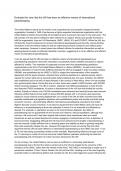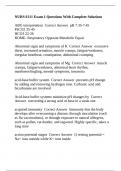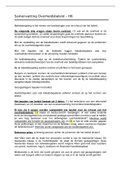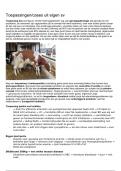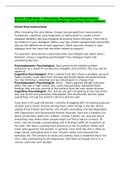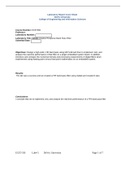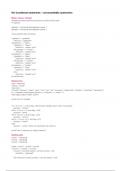Exam (elaborations)
Evaluate the view that the UN has been an effective means of international peacekeeping (A)
- Module
- Global Politics
- Institution
- PEARSON (PEARSON)
Evaluate the view that the UN has been an effective means of international peacekeeping (low A grade). Hope this can help in some way!
[Show more]
